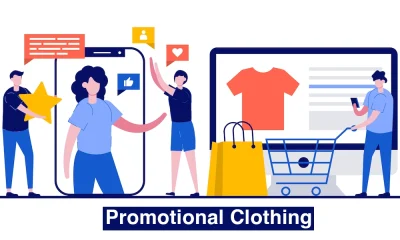Marketing
Digital Marketing Strategies for the Next Decade

There is always somewhere where the air is crisp, and many places see frost, ice, and snow. For the northern hemisphere, it’s at the end and beginning of a new year. For regular people, another year means another set of fashion and home décor trends to keep up with. Still, for businesses, they want to look further out i.e., the next decade and how technology will revolutionize all sorts of business processes, especially those that occur online.
Business 4.0 is the term for business processes utilization of Industry 4.0 technologies. Automation, machine learning, and AI are ubiquitous in software and apps for extensive data personalization and more profound customer experiences. For example, digital marketing uses automation and AI for data capture, analysis, reporting, and marketing campaign management. You’ll find AI in SEO, SEM, and more. If you are looking to future-proof your marketing plans, read on for some predictions about digital marketing over the next decade.
Artificial Intelligence Will Drive Paid Search
Google provides the best search results, delivered with a complex network of technologies that meticulously crawl across the internet. AI is used to understand and catalog content and learn about human speech patterns and power Adwords.
Paid search, which is also called search engine advertising, allows businesses to place search results for particular keyword queries, guaranteeing themselves a high ranking and high visibility amongst their target audience. Typically, companies have paid search engine optimization (SEO) experts to manage the spending on keywords; however, they will need to look for another way to remain relevant with their clients as programmatic advertising takes over.
Utilizing artificial intelligence to buy advertising space, programmatic advertising uses data about the business’s audience. AI promises greater efficiency in advertising placement, reducing business costs and increasing audience engagement.
Voice Assistants Will Affect SEO
Over one-third of adults in the United States own a smart speaker, which they use to converse with their voice assistants like Amazon’s Alexa, Apple’s Siri, Microsoft’s Cortana and Google’s (nameless) assistant. These intelligent tools are more capable than ever, performing manual tasks like turning off lights and digital functions like searching the web for answers to questions.
However, how humans speak is vastly different from how we type, which is frequently different from how users have learned to engage with search engines. A traditional query like “Handyman Cherry Hill New Jersey” might become “Alexa, what is the phone number for the closest handyman?”
As the voice-controlled search begins to flourish, SEO experts will need to adapt their strategies to include spoken speech patterns.
Personalized Content Will Flourish
Consumers want to feel like individuals, not like a droplet in a massive pool of potential customers. As a result, consumers tend to prefer engaging with content that feels personal and authentic – and that’s what businesses need to offer.
Fortunately, the availability of vast amounts of data makes producing highly personalized content exceedingly possible. The trick is identifying what kind of content works best for which audience type. In general, video content has been increasing in popularity for more than a decade, and it will continue its significance through the next decade in forms like Instagram TV, Twitch live streaming, and brief TikToks. Businesses should work with experienced content marketers to leverage their data into content that packs a punch.
Influencer Marketing Systems Will Automate
What word-of-mouth marketing once was, now influencer marketing is. Many businesses spend a portion of their marketing budget on influencers – mildly famous people on social media – who talk about their brands or products to their followers and fans. However, because so many influencers are operating on social media, it can be overwhelming to decide which influencers are right for a brand.
Fortunately, automation is now part of matching brands with influencers. AI can analyze the affinity between brands and influencers by sifting through images and videos, looking for particular characteristics. Plus, AI can provide greater insight into the success of an influencer’s sponsored post, telling brands whether they should continue a relationship with that particular influencer.
It’s unwise for businesses to settle into any digital marketing rut – the industry sees so many shake-ups as new technology trends emerge. The next decade promises to bring great things to digital marketers, including AI, automation, and innovative tech, and businesses should look forward to taking full advantage in the coming years.






